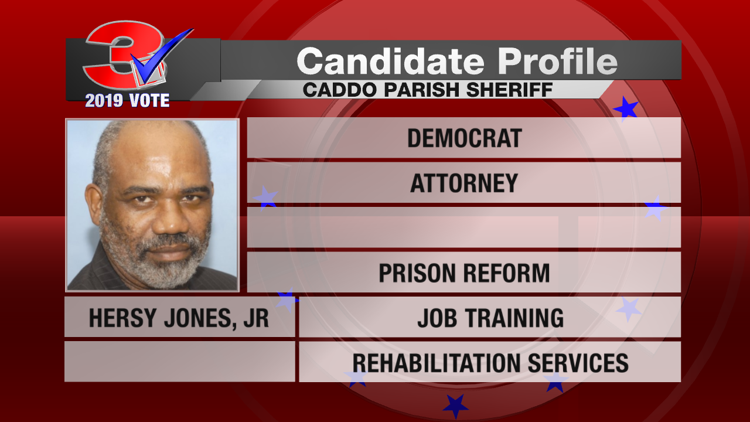Henri Lyles is challenging his life sentence under a statute that penalizes people for prior convictions. A favorable decision by the state Supreme Court would mean that he and a dozen people sentenced to life could one day be freed.
On Jan. 2, 2014, the 11-year-old daughter of Henri Pierre Lyles and Imani Wilson died of juvenile bone cancer. Just over one year later, the couple, who were still grieving the loss and coping with trauma and stress, got into an argument at their home in LaPlace, Louisiana, a town of about 30,000 people in the New Orleans area.
The dispute escalated into a physical confrontation, and at one point Lyles choked Wilson until she lost consciousness and urinated on herself. Wilson was later treated for minor cuts to two fingers, injuries she suffered when she grabbed the blade of a 13-inch kitchen knife that Lyles held during the dispute.
On Feb. 1, 2015, the St. John the Baptist Parish Sheriff’s Office arrested Lyles for domestic abuse battery, second-degree battery, and aggravated battery with a dangerous weapon. On Nov. 16, 2016, a jury convicted Lyles of aggravated battery. On Feb. 13, 2017, a judge sentenced Lyles to eight years in prison and ordered him to pay a $1,000 fine.
But during an evidentiary hearing, prosecutors with the St. John the Baptist District Attorney’s Office argued that Lyles’s two prior convictions—which included a manslaughter case in Orleans Parish—made him a “habitual offender” who, under Louisiana law, should never see the outside of the prison’s walls. The judge then sentenced Lyles to life imprisonment without the possibility of parole.
Lyles filed a motion to reconsider his sentence, which was denied. But on appeal, Lyles’s habitual offender sentence was vacated and his case was remanded for resentencing in 2018.
On March 14, 2017, Lyles entered the Louisiana State Penitentiary at Angola. Depending on the outcome of the resentencing, Lyles would spend up to 20 years behind bars at the plantation turned maximum security prison—or die there.
Under Louisiana’s habitual offender statute, a district attorney can file to have a person’s punishment enhanced based on their criminal history. In 2011, Bernard Noble was sentenced to 13 years in prison after he was arrested in New Orleans for possessing two marijuana joints because of prior drug convictions. Noble served seven years and was granted an early release. In 2016, Jacobia Grimes faced 20 years to life for allegedly stealing $31 worth of candy bars from Dollar General store in New Orleans after Orleans Parish DA Leon Cannizzaro charged him under the habitual offender statute. The case received national attention, and Grimes later entered a guilty plea in which he was sentenced to two years in prison.
Cognizant of such excessive sentences and Louisiana’s title as the most incarcerated state in the U.S. at the time, state lawmakers tackled habitual offender reform. In 2017, they lessened mandatory minimum punishments for felonies, narrowed the period of time that prior conduct could be used under the statute, and prohibited life sentences for nonviolent offenses. Under the old habitual offender law, for example, a conviction on a fourth offense of possession of two grams or less of cocaine triggered a 20 year to life sentence. Under reform of the statute, a fourth offense resulted in a maximum of 20 years in prison. The Louisiana Legislature enacted habitual offender reform as Act 282, which Governor John Bel Edwards signed into law on June 15, 2017.
On March 12, 2018, a resentencing hearing was held in the Lyles case. Defense counsel argued that he should benefit from habitual offender reform because his life sentence was vacated and Act 282 had passed while he awaited resentencing. Prosecutors argued that Lyles should be sentenced under the habitual offender statute that was in effect at the time of the offense. The judge agreed with the state—and then sentenced Lyles to life in prison without parole.
On April 25, 2018, state Representative Joseph Marino of Jefferson Parish, a conservative New Orleans suburb, and Jerry Fortunato, an assistant district attorney with the Jefferson Parish DA’s office, presented a bill that amended Act 282 to ensure the pre-reform, harsher habitual offender statute could be applied to defendants like Lyles.
Fortunato represented the Louisiana District Attorneys Association (LDAA), a powerful group of prosecutors from across the state. In Louisiana and across the country, DA associations exert enormous influence on criminal legal system policy-making. The LDAA opposed reforms to the habitual offender statute that were enacted in 2017, and in April 2018 the group helped thwart legislation that would have removed nonviolent and non-sex offenses from the habitual offender law. The 2018 update to the habitual offender statute supported by the LDAA became Act 542 and was signed into law by Governor Edwards on May 28, 2018.
Lyles’s attorneys argue that the LDAA-backed legislation effectively stripped people of rights that had been granted under 2017’s habitual offender reform. “The government can go back and grant people more rights retroactively, which is exactly what the legislature did for this group of people in 2017,” Sarah O’Brien, a staff attorney with Orleans Public Defenders, told The Appeal in a phone interview. “But they can’t provide someone a right one year and then go back and strip them of that right the next year. People get to know what rules they’re playing by.”
In an email statement to the Appeal, the LDAA’s executive director, Loren Lampert, wrote that 2017’s reform of the habitual offender statute “was devoid of clear guidance on the retroactive/prospective applicability—which created some confusion in the courts” and led to the organization’s support of Act 542.
On Dec. 27, 2018, Louisiana’s Fifth Circuit Court of Appeals affirmed Lyles’s life sentence, ruling that the habitual offender statute was properly applied by the trial court because he committed the aggravated battery in 2015, before the law was changed. But in a July 15 brief filed with the Fifth Circuit, Lyles attorney Cormac Boyle argued that his sentence was unfair and unconstitutional because the 2017 reform of the habitual offender statute should exclude an old drug conviction as a prior offense. If Lyles isn’t allowed to benefit from habitual offender reform, Boyle concluded in the brief, the state would “effectively pull the proverbial rug out from under Mr. Lyles, condemning him to a sentence drastically longer than the one which he is entitled to.”
In a July 29 brief filed with the Fifth Circuit, Justin Lacour, an assistant district attorney in St. John the Baptist Parish, countered that “the legislature never intended for the 2017 amendments to the Habitual Offender Law would apply to defendants, like Mr. Lyles, who had been convicted under a prior version of the law.”
Now, Lyles’s hope for resentencing rests on a challenge to how prosecutors applied the habitual offender statute in his case. On Sept. 4, Boyle argued before the Louisiana Supreme Court that Lyles’s conviction was not final when habitual offender reform went into effect, making him eligible for a 20-year, second offense sentence. The St. John the Baptist Parish DA’s office countered that state lawmakers did not want habitual offender reform to apply both prospectively and retroactively. That’s why the law was amended in 2018, Lacour said.
If the state Supreme Court rules in favor of Lyles, the decision would apply to more than a dozen defendants currently sentenced to life imprisonment, including one of O’Brien’s clients, Terrell Belvin. In 2015, he was convicted of aggravated battery for seriously injuring a jazz musician who allegedly instigated a fight with him at a French Quarter bar.
Belvin was initially sentenced to a minimum of five years in prison, but because of prior convictions Orleans Parish prosecutors filed a multiple bill that allowed him to be sentenced to life without the possibility of parole under the old habitual offender statute. Under the reformed habitual offender statute, Belvin would be eligible for parole after he serves 20 years.
“For some of these people, we are talking about a difference of 30, 40, 50 years in prison,” O’Brien said. “The Constitution doesn’t allow the government to toy with our freedom like that. It can’t just be stripped away with the political tide.”




